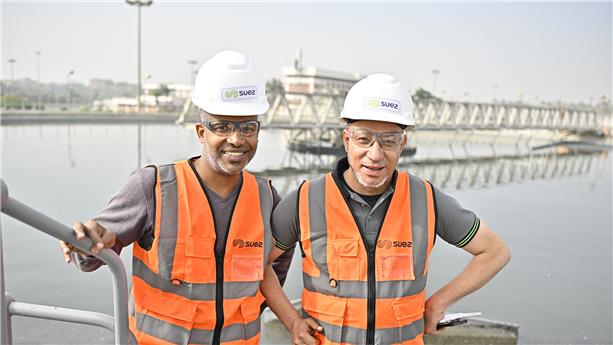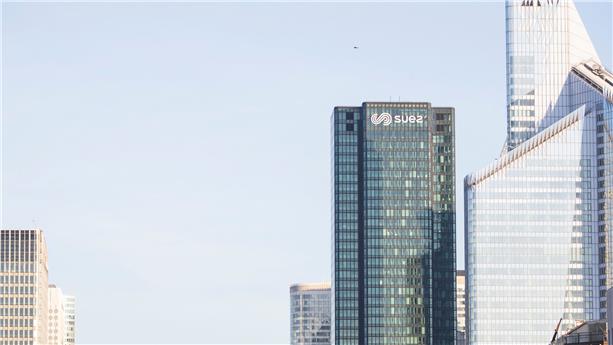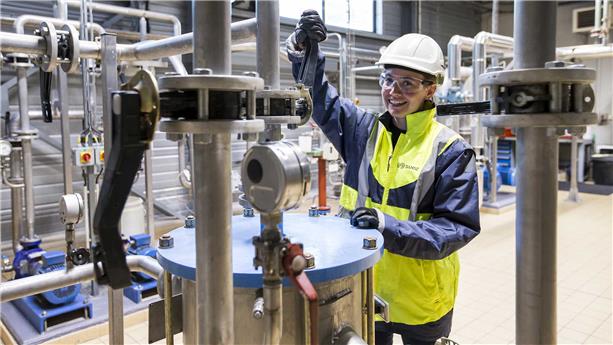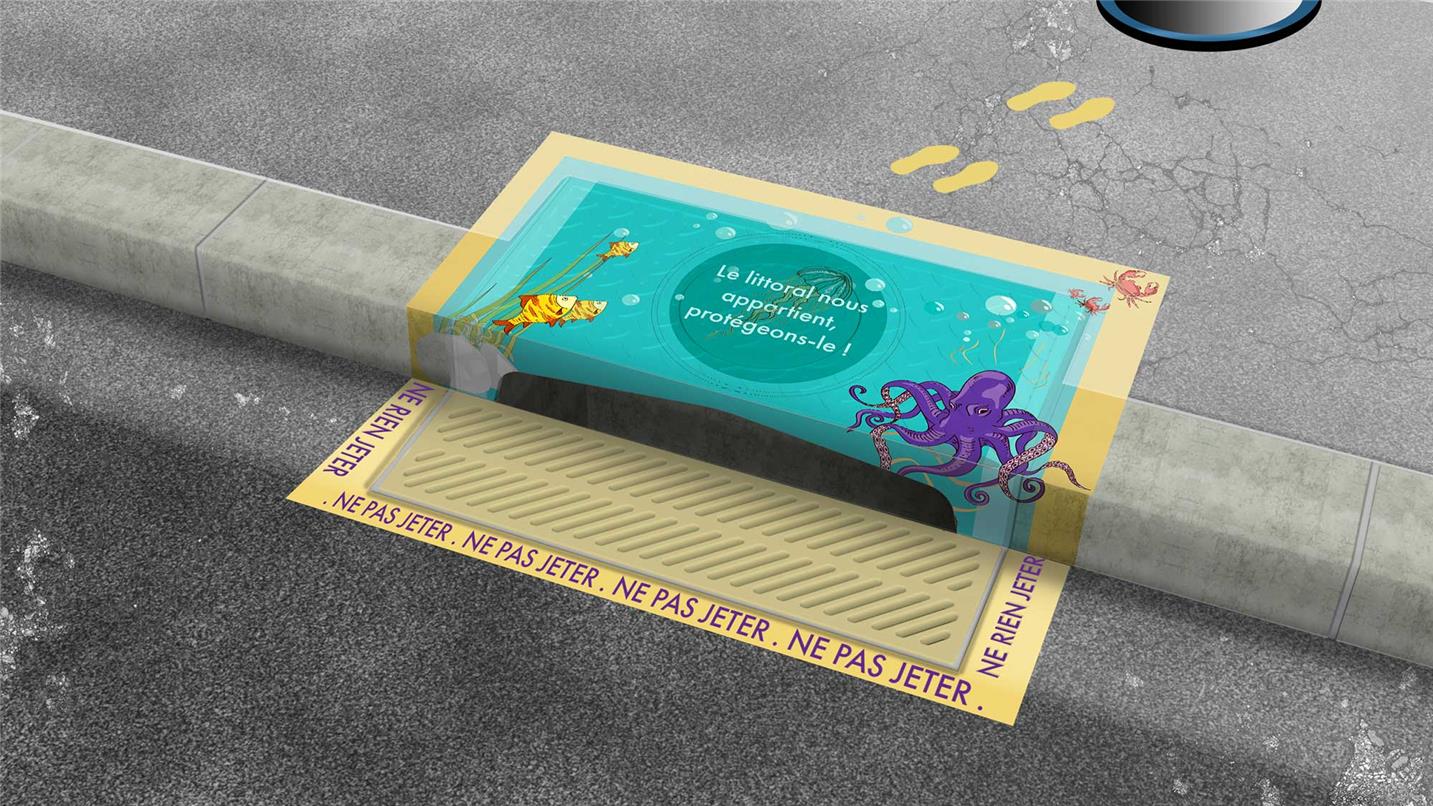
Need a helping hand to improve your environmental impact?
In a world where reducing our waste production becomes an essential part of the protection of our environment, encouraging citizens to embrace new ways of life becomes critical. We offer a full range of recycling and recovery services, enriched with smart and digital solutions, to promote responsible behaviours and help your employees and citizens to play an active role in preserving their environment.
In 2022, the OECD conducted a survey on the eco-responsible behaviour of 17,000 inhabitants in nine countries: Belgium, Canada, Israel, France, the Netherlands, Sweden, Switzerland and the United Kingdom and the United States.
More than half of those surveyed expect climate change and environmental issues to reduce the quality of life for current and future generations. Two-thirds indicate that they are willing to make personal compromises on their lifestyle for the benefit of the environment.
In France, since 2021, we have set up the barometer "The French and their carbon footprint" jointly with the EBRA Group, with the Odoxa polling institute.
In a context of climate emergency, this survey aims to measure the evolution of the environmental concerns of the French, their knowledge, and actions in terms of carbon footprint, as well as their expectations for the future. The 2023 wave of the barometer was conducted online from September 6 to 11, with a sample of 1,519 French people, representative of the national population aged 18 and over.
The survey found that:
- The energy and inflationary crisis have changed the way of life and priorities of the French.
- Over the past year, more than 8 out of 10 French people have reduced their energy consumption
- More than half of them have given up heating their homes properly (62%) and reduced their hot water consumption (60%),
- The share of French people who want economic policies to take precedence over the environment remains in the minority (43%) but it has gained 7 points compared to 2022.
- Ecological concerns are taking root among the French and the energy crisis has accelerated their conversion to eco-responsibility.
- 61% of French people have decided to adopt, definitively, the changes they have put in place over the last 12 months (reduction in heating, electricity consumption, eco-gestures, etc.) to deal with the energy crisis.
- The French are strongly convinced that really limiting their carbon footprint implies real and profound changes in behaviour (76%).
- Several solutions exist to improve our behaviour:
- Regulations that impose rules with immediate effect for a lasting impact. This is the case, for example, with the anti-waste law for a circular economy, which has scheduled the gradual ban on various disposable plastic objects such as straws and cotton buds.
- Financial incentives such as subsidies for the purchase of electric vehicles to reduce the environmental impact of travel and limit its carbon footprint.
- The adoption of eco-responsible behaviours at all levels. Users, companies and their employees, and local authorities must engage in new sustainable behaviours.
Everyone is already familiar with everyday eco-friendly gestures: saving water, reducing energy consumption, recycling waste.
A range of solutions to encourage eco-friendly gestures
Action against global warming requires better production and management of waste.
On the business side, we have developed a range of consulting and support services that allow you, in an ambitious and constantly evolving regulatory context, to have access to our expertise as a waste manager in order to optimise your waste budget and manage your carbon footprint.
On the local authority side, we support you in the design and implementation of innovative solutions for the development of eco-responsible behaviour among the territory's citizens. We are implementing formal solutions such as digital tools to encourage people to manage their waste production, but also more informal solutions such as "nudges", small tools to encourage people to change their behaviour in order to improve their impact on the environment.
Technology and innovation
Our user portal allows, for example, to set up incentive communication. It gives targeted advice on the territory to sort and reduce waste. Our IoT range of connected containers, Wasteconnect®, accompanies the user at voluntary drop-off points as well as with access passes to guarantee the quality of the material deposited.
We use advanced technologies to incentivize behavioural changes.
Commitment to sustainability
By transforming waste into new resources, we contribute to a low-carbon circular economy.
Your trusted partner for circular solutions in water and waste
Our inspiring stories
"From land to sea, let's turn off the waste tap", an unprecedented operation to fight against waste at sea
As part of a CEI aimed at bringing out new initiatives to address the problem of abandoned waste in the Aix-Marseille-Provence Metropolis, the operation entitled "From the Land to the Sea, let's cut the waste tap", led by the Marseille-based association Synchronicity, aims to reduce the arrival of abandoned waste in the urban sanitation network.
Five stages have been defined for the deployment of the operation and will make it possible to:
- Mapping a representative number of strategic drains in the Marseille rainwater network, equipped by SERAMM-SUEZ with IOT Green City Zen, making it possible to know their fill levels in real time.
- Analyse and characterise the surface environment of each drain and the respective abandoned waste they contain, in order to extract typical typologies.
- To imagine and bring out, through a design thinking approach, proposals for concrete actions to stop the bad gestures of abandoning this waste in the city.
- Implement these selected solutions while raising awareness among stakeholders through actions in the field.
- Analyse the results obtained and communicate on the most effective actions to limit the presence of waste in the wastewater network.
DIR Atlantique: SUEZ4You, a positive training
"The first theoretical part took place in our meeting room with the presence of 3 trainers from the SUEZ group. It focused on the relevance of recycling waste in a company to reduce its carbon footprint, save natural resources and inspire a sustainable change in our sorting practices. Particular attention was paid to the price of "more or less" well-sorted waste, which should be considered as an opportunity for optimisation and cost reduction.
The second part of the training took place in our Maintenance and Intervention Centre (CEI), which allowed us to see the mistakes made as closely as possible and how to rectify them. Good practices were also noted.
The results of this training seem positive to me because we have understood a little better our role as an operator with the challenges related to the management of our waste in the CIS and the rest of the value chain in the SUEZ company."


